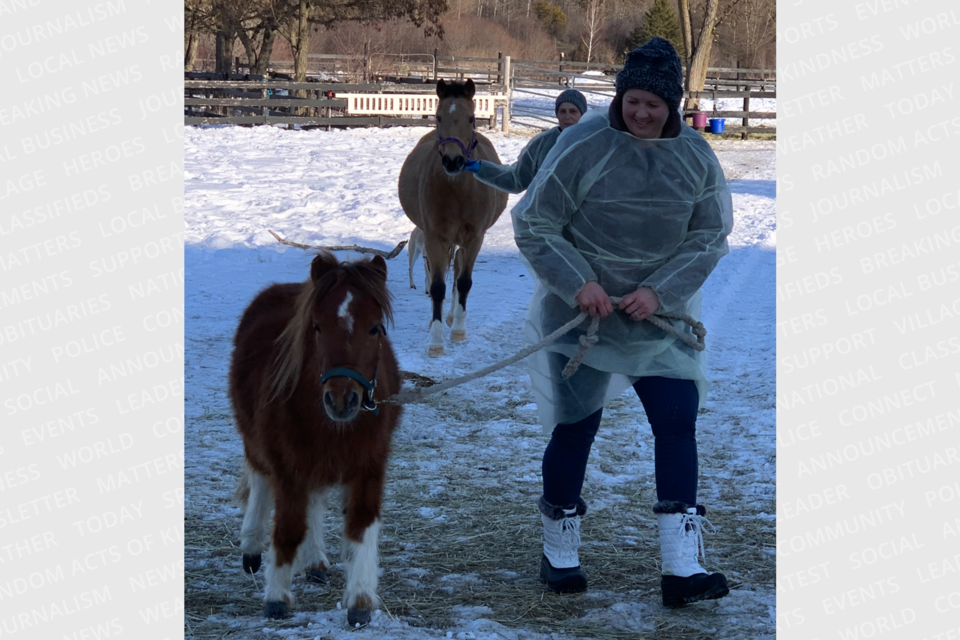PUSLINCH – Irish Creek Stables on Wellington County Road 34 has lost five horses and taken multiple others to the University of Guelph to be treated for Equine Herpes Virus (EHV-1) as the stable continues to grapple with an outbreak that began last month.
EHV-1 is relatively common in horses and usually presents mild respiratory symptoms, but more severe cases can become problematic and life-threatening, professor at the Ontario Veterinary College Dr. Scott Weese said.
“Abortion and neurological disease are the main concerns,” he said.
“Mortality rates with neurological disease are variable and many horses will survive with proper care, but that can be complicated and expensive. A pretty wide range of mortality rates get quoted, from 30 to 70 per cent. I’d say it’s under 50 per cent if we can treat them and they survive long enough to get to us.”
Unfortunately, the virus can spread rapidly once a horse is infected. It can travel over 10 metres in certain conditions but is most likely when horses are within close proximity in their stalls.
The other downside of an EHV-1 diagnosis is the lack of treatment options available, making it more of an effort to manage symptoms and limit spread.
“There are some antivirals that can be used but they're expensive and not necessarily effective for neurological disease, as the problem is more inflammation from damage to blood vessels rather than the actual viral infection,” Weese said.
“We probably don’t get a chance to treat early enough to have much of an impact so we’re left with trying to nurse them through it, reduce the inflammation and limit spread to other horses.”
The first obvious sign of more severe disease is issues with a horse’s hind end and that’s exactly what owner of Irish Creek Stables, Elizabeth Lewis, began to notice.
“I’ve had the farm for 46 years and never had an outbreak of any kind,” Lewis said.
“Some get a temperature like a flu and they deal with it but it can also impact respiratory function. Once it mutates it travels through to the brain and the spine and it’s quite horrible when you see it. They lose control of their hind end.”
The virus has taken its toll on not only the horses, but Lewis and her team as they try to limit the spread and care for those already infected.
“Losing the five horses has been devastating,” Lewis said.
“Since the beginning of January I haven’t slept much. We change our clothes all the time, wear protective equipment and have foot baths. We also take their temperatures twice a day and they’re on anti-viral medication.”
Lewis believes part of the reason for the fast spread was the stressor of the erratic weather and the measures needed to keep their horses safe and protected, like keeping them in close quarters.
If there’s something to be learned from this experience, Lewis wants the equine community to know that this virus is out there and it’s not uncommon.
Lewis also wants to thank the community for all of their support. While the total costs are not yet known, it's now well north of $10,000.
“I think we could see a lot more of this virus,” Lewis said.
“A lot of people don’t talk about, I think maybe because people are afraid they might lose business. We're concerned that the equine community is well aware of how hard and fast it can hit. We also want those who have donated in kind or financially to know how grateful we are. It’s been overwhelming.”
A GoFundMe has been established to help offset costs. Visit at gofundme.com.
